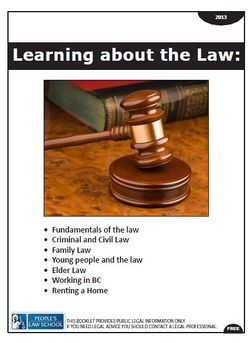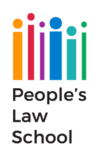Human Trafficking in Canada: Difference between revisions
Jump to navigation
Jump to search
No edit summary |
|||
| Line 1: | Line 1: | ||
{{DEMOWARNING}} | {{DEMOWARNING}} | ||
{{Human Trafficking in Canada TOC}} | |||
{{Cover Thumbnail | {{Cover Thumbnail | ||
|filename = LAL Wikibook Cover.JPG | |filename = LAL Wikibook Cover.JPG | ||
Revision as of 20:27, 11 March 2014
|
|
This page from JP Boyd on Family Law—and other pages from this Wikibook that discuss BC family law litigation topics—are under editorial review to provide more thorough, current, and practical guidance. Since 2020, procedures, forms, and laws have changed significantly. While gross inaccuracies have been corrected, some details may still be outdated. These pages were not included in the 2024 print edition, and have been highlighted in orange where they appear in the navigation menu on this website. |

|
|
This is a Clicklaw Wikibook, a collaborative, plain language legal publication that is updated as a wiki and can be printed or downloaded. |
|
|
This wikibook is used in several Law-Related ESL Lessons from People's Law School. |
The Human Trafficking in Canada Wikibook from People's Law School will help you understand the law in Canada. It focuses on your legal rights and responsibilities under Canadian law.
Contents[edit]
About this wikibook[edit]
- Acknowledgements & credits
- Learn more about Clicklaw Wikibooks or visit other wikibooks from People's Law School
About People's Law School[edit]
The People’s Law School is a non-profit charitable society whose purpose is to provide British Columbians with reliable information about their rights and responsibilities under the law.

- Suite 150 - 900 Howe Street
- Vancouver, BC
- V6Z 2M4
- Tel: 604-331-5400
- Fax: 604-331-5401
- Email: info@publiclegaled.bc.ca
| |||||||||||||||||||||||||||||

